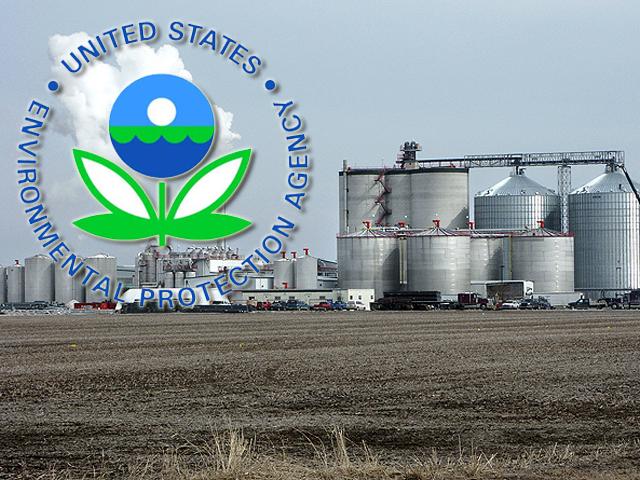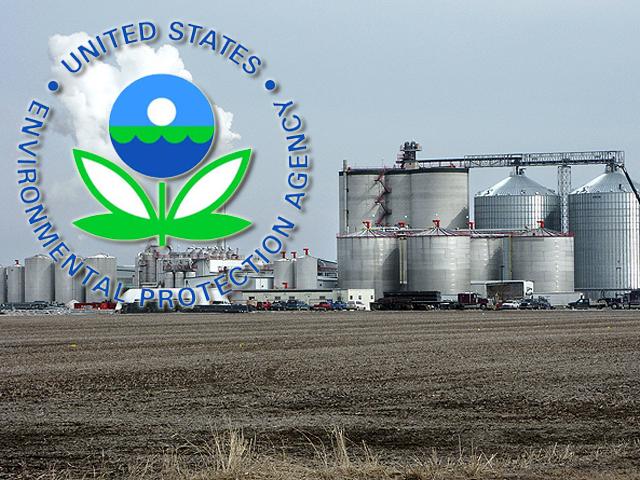Ethanol Blog
Ethanol Groups Tell EPA Ethanol Key Part of Emissions Reduction in Transportation Fuels
LINCOLN, Neb. (DTN) –- Ethanol interest groups call on the EPA to adopt a technology-neutral approach to regulating greenhouse gas emissions in vehicles, in testimony given to the agency this week on the Biden administration's proposed change to emissions standards that would force the use of more electric vehicles in the next decade.
Early in April the EPA released a proposal, https://www.dtnpf.com/…, that would create fewer buying options for farmers and other blue-collar Americans who rely on their pickups and potentially semi-trucks.
The agency is hosting a virtual public hearing this week from Tuesday to Thursday.
Two ethanol groups offered testimony on Tuesday, calling on the EPA to use the GHG reductions ethanol can bring as part of the rule.
In written comments submitted to the agency, Renewable Fuels Association President and CEO Geoff Cooper called on the EPA to use "honest carbon accounting" and to adopt a technology-neutral approach.
"RFA shares the Biden administration's goals of increasing vehicle efficiency and reducing carbon emissions," Cooper said.
"However, we strongly disagree with regulatory approaches that arbitrarily pick technology winners and losers. Unfortunately, that's exactly what this proposed rule would do."
The RFA said at issue is the agency's proposal allowing electric-vehicle manufacturers to use a zero grams-per-mile emissions compliance value for EVs.
P[L1] D[0x0] M[300x250] OOP[F] ADUNIT[] T[]
"This approach falsely assumes EVs have no carbon impacts whatsoever and ignores the upstream emissions related to electricity generation, as well as the substantial emissions involved in battery mineral extraction and vehicle construction," RFA said in its comments.
"We strongly oppose EPA's proposal to exclude upstream emissions in the GHG accounting."
Cooper told the agency that the administration's own research shows high-octane, low-carbon renewable fuels like ethanol can immediately deliver "dramatic" improvements in fuel efficiency and carbon performance when paired with the right engine technologies.
"We urge EPA to reconsider its proposal and instead adopt a technology-neutral approach that treats all low-carbon transportation options fairly and equally, and we ask that EPA use this rulemaking to establish a roadmap for increasing the required minimum-octane rating of our nation's light-duty vehicle fuel," Cooper said.
American Coalition for Ethanol CEO Brian Jennings also testified on Tuesday.
Jennings said EPA should give more consideration to ethanol to replace the fossil-fuel-powering 99% of the U.S. vehicle fleet. In addition, he pointed to the Intergovernmental Panel on Climate Change finding that 89% of the world's capacity to mitigate carbon emissions comes from agricultural soil carbon sequestration.
"Understanding this enormous potential, ACE is leading a project to more accurately validate the degree to which farmer adoption of practices, such as reduced tillage and cover crops, reduce ethanol's lifecycle GHG emissions," Jennings said in his prepared testimony.
"Unfortunately, the California Low Carbon Fuel Standard does not yet allow carbon credits for biofuels produced from climate-smart agriculture, and since EPA's proposal puts all our eggs in one basket, it fails to unlock the significant carbon mitigation potential from agricultural lands and ethanol. We can and should do better.
"EPA should reconsider its proposal, develop a technology-neutral approach to decarbonizing transportation fuel, and engage with ACE as we implement our project to ensure fair and accurate accounting for GHG reductions from climate-smart agriculture and ethanol."
Chris Bliley, senior vice president of regulatory affairs for Growth Energy, is slated to testify before EPA on Wednesday.
In his prepared remarks, Bliley is set to tell the agency that liquid fuels will be needed for many years to come and that ethanol should continue to be a growing part of that mix.
"Liquid fuels will continue to play a dominant role in the transportation sector now and for decades to come," Bliley will say in his comments.
"These fuels and vehicles operate as a system. As such, it is imperative to consider the vital role that environmentally sustainable fuel options such as ethanol will play in reducing greenhouse gas emissions from the current and future vehicle fleet, rather than putting the thumb on the scale for one, single technology."
Bliley is set to tell EPA that ethanol reduces GHG emissions by nearly 50% compared to gasoline, and that the agency should "avoid leaving millions of tons of carbon reductions on the table."
Bliley will call on EPA accelerate the deployment of E15 nationwide; to approve and adopt high-octane, midlevel ethanol blends like E30; expand access to flex fuel vehicles in conjunction with use of E85; and to finalize "strong volumes" under the Renewable Fuel Standard for 2023, 2024, 2025 and beyond.
Todd Neeley can be reached at todd.neeley@dtn.com
Follow him on Twitter @DTNeeley
(c) Copyright 2023 DTN, LLC. All rights reserved.





Comments
To comment, please Log In or Join our Community .